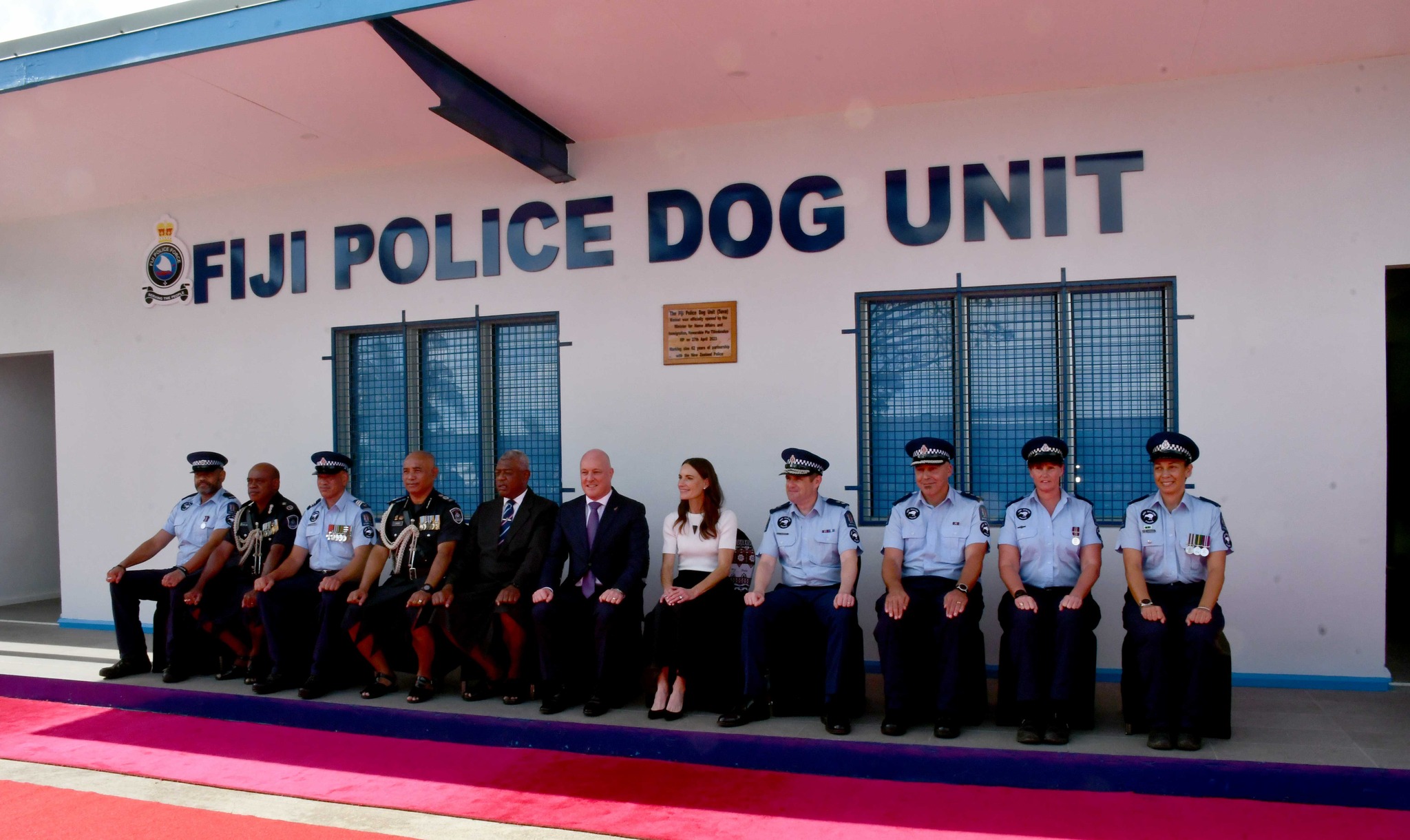New Zealand Prime Minister Christopher Luxon visited the Fiji Police Detector Dog Unit Thursday, emphasising New Zealand’s commitment to assisting Fiji and the region in combating narcotics.
Luxon highlighted the importance of investing in detector dogs as a critical tool in the fight against drug trafficking.
He reiterated New Zealand’s support and the significance of regional cooperation in addressing this challenge.
“The investment here with the Detective Dogs makes really good sense, and the more that we can do as part of our tool set that we can deploy, pushing back on narcotics, is actually very important. So again, I just want to say congratulations on what you’ve built and what you’ve achieved here. It’s absolutely fantastic.”
The Prime Minister praised the Unit for its achievements and success stories, urging continued investment in detector dogs to strengthen efforts against drug trafficking.
Luxon’s visit highlights the strong bilateral relations between New Zealand and Fiji and the shared commitment to enhancing regional security and combating narcotics.
Prime Minister Sitiveni Rabuka and his New Zealand counterpart have pledged to bolster their countries’ joint efforts to combat the growing drug trafficking problem in the Pacific region.
At a press conference in Suva, both leaders expressed deep concern over the impact of drugs on the country.
NZ Prime Minister Luxon highlighted the collaborative efforts already in place, highlighting that Fiji and New Zealand police forces have been working closely together.
“It is a big challenge, and there are forces outside of the Pacific that are contributing to that, and we need to stand and work together on what is a really tough and complex problem.”
Prime Minister Sitiveni Rabuka highlighted the recent significant drug bust in the country, emphasising the scale of the problem.
He also highlighted discussions on the rehabilitation of drug users.
“On Tuesday, Cabinet, we agreed with the various, first of all, the strategy on anti-drug and narcotics fight and also the strategy and also the setting up of the actual machinery to pursue the development of those strategies. It is a big problem.”
Earlier this week, the cabinet endorsed the National Counter Narcotics Strategy 2023–2028.
Key focus areas under the strategy include reducing demand for narcotics, reducing supply, reducing harm, legislative reform, data collection, analysis, and information sharing, the establishment of a drug addiction treatment centre, and partnership, coordination, and international cooperation.
The cabinet has also approved the establishment of the Fiji Counter Narcotics Bureau, an independent institution under the Ministry of Home Affairs and Immigration.
It has also approved the development of a Fiji Counter Narcotics Bureau Bill to empower the roles and functions of the Bureau.
The draft bill will be considered by the Cabinet following the necessary consultation process before it is tabled in Parliament.














